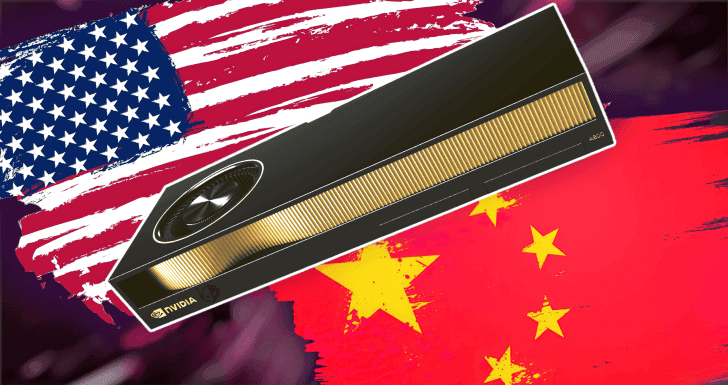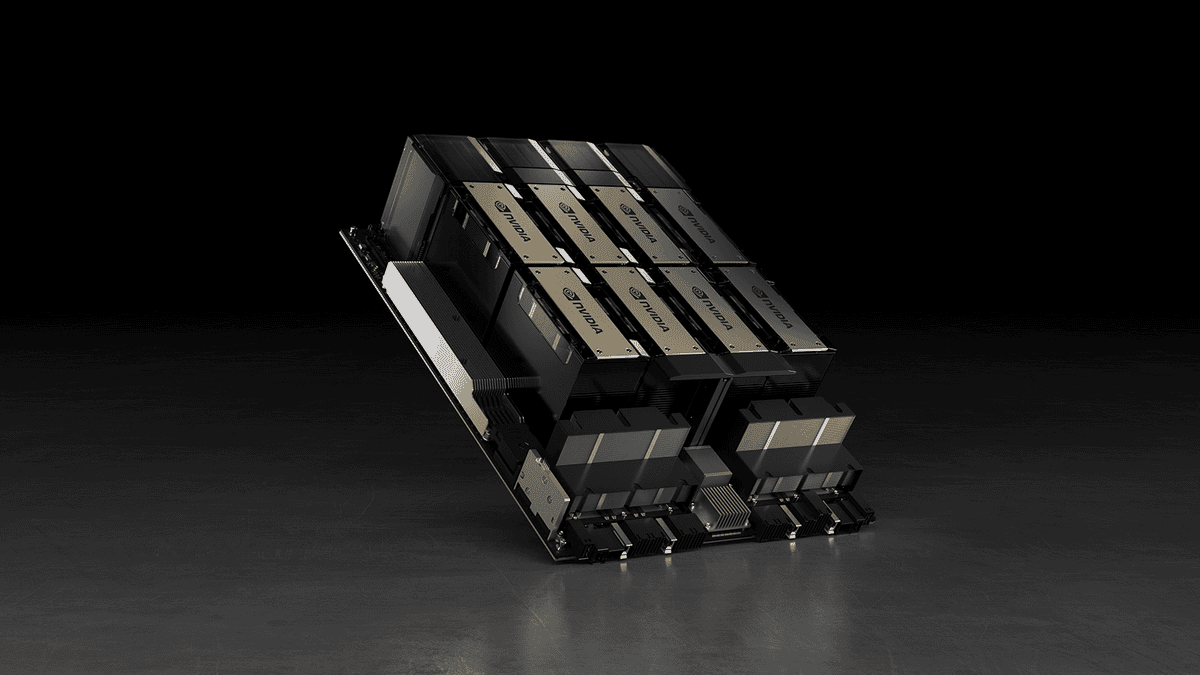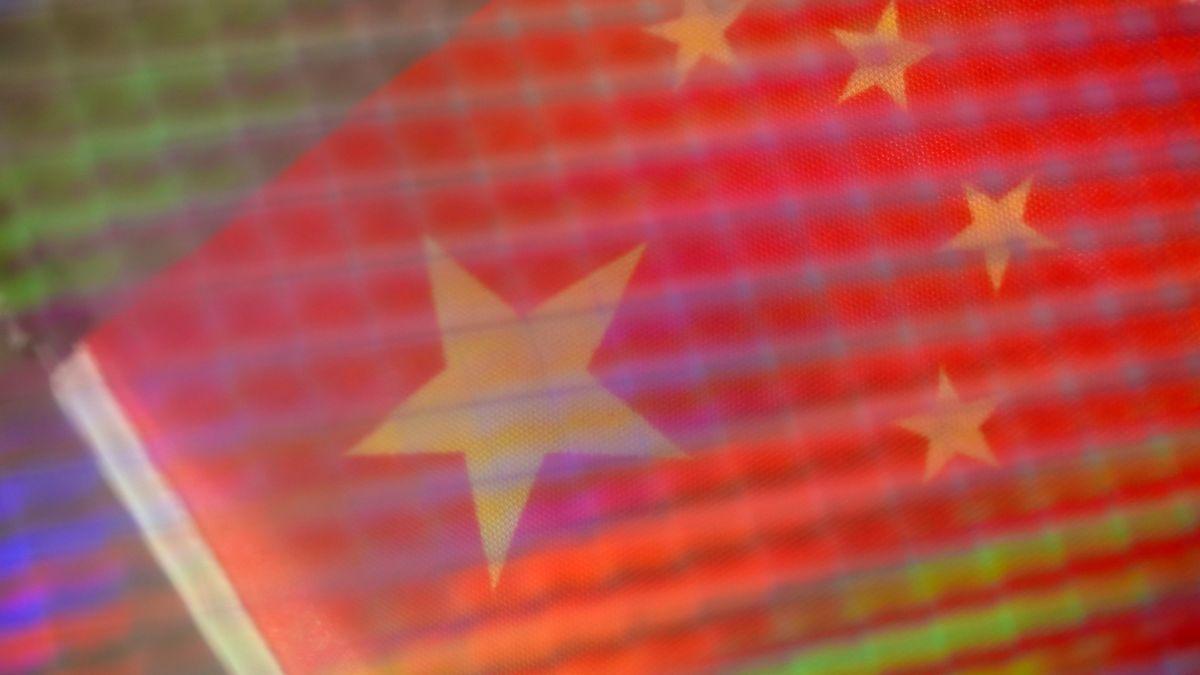US Considers AI Chip Export Restrictions to Malaysia and Thailand to Prevent China Access
6 Sources
6 Sources
[1]
US reportedly plans to curb sales of AI GPUs to Malaysia and Thailand to prevent smuggling to China
The U.S. government is preparing a new set of export rules that would tighten control over the exports of advanced Nvidia AI GPUs to Malaysia and Thailand, in a bid to prevent the re-export of these components to China amid existing bans, according to Bloomberg. A preliminary version of the new export rule, reported by Bloomberg, states that the U.S. Commerce Department would require companies to obtain a U.S. government export license before sending AI GPUs to the two Southeast Asian nations. The plan has not been finalized and may change, yet it may represent another step towards limiting Chinese entities' access to high-performance Nvidia AI GPUs. Malaysia and Thailand are not major suspected hubs for the smuggling of Nvidia's GPUs, unlike Singapore, which is officially listed as one of Nvidia's primary sources of revenue, raising questions about whether the products sold to Singapore-based entities eventually end up in China. Indeed, Nvidia denies that its AI GPUs formally sold to Singapore-based entities could end up in China, arguing that they are sold to entities officially based in Singapore, but they are destined elsewhere. Nonetheless, it is widely believed that Singapore is a hub for smuggling high-end Nvidia GPUs to China and other sanctioned countries. Yet, Malaysia seems like a different thing. The country is not listed as one of Nvidia's primary sources of revenue, so we do not know how much the company earns selling products to the country. However, Malaysia has emerged as a significant destination for computing equipment and components -- including CPUs and GPUs essential for AI applications -- sourced from Taiwan in recent quarters. Moreover, Malaysia is reportedly used to avoid U.S. import tariffs for China-made goods, which might be a concern for the U.S. Commerce Department. Thailand is among the countries suspected of being a hub for smuggling Nvidia's AI GPUs to China. However, without formal data, we can only wonder whether the suspicion has merit.
[2]
US Plans AI Chip Curbs on Malaysia, Thailand Over China Concerns
President Donald Trump's administration plans to restrict shipments of AI chips from the likes of Nvidia Corp. to Malaysia and Thailand, part of an effort to crack down on suspected semiconductor smuggling into China. A draft rule from the Commerce Department seeks to prevent China -- to which the US has effectively banned sales of Nvidia's advanced AI processors -- from obtaining those components through intermediaries in the two Southeast Asian nations, according to people familiar with the matter. The rule is not yet finalized and could still change, said the people, who requested anonymity to discuss private conversations.
[3]
US mulls AI chip restrictions for Malaysia and Thailand, to stop flow of AI chips to China
As an Amazon Associate, we earn from qualifying purchases. TweakTown may also earn commissions from other affiliate partners at no extra cost to you. The US Commerce Department is exploring new AI chip export restrictions that would stop AI chips from being smuggled through Southeast Asia and into China. In a new report from Bloomberg, we're hearing that the US Commerce Department is seeking to close the loopholes that are seeing the flow of AI chips into China. We've seen Chinese companies using loopholes like renting AI GPUs or accessing them through Southeast Asian countries like Malaysia and Thailand. The US Commerce Department is preparing a draft for China that would see new restrictions on accessing AI chips through backdoors in Malaysia and Thailand, with claims that both countries would be slapped with increased restrictions. One of the new methods would be allowing AI chip exports into nations only if they're used by those companies that have headquarters in the United States and are operating subsidiaries in Malaysia and Thailand. The US government is still working on the final parts of how to frame the Biden-era "AI Diffusion" rule, according to US Commerce Secretary Howard Lutnick, who explained: "the US will allow our allies to buy AI chips, provided they're run by an approved American data center operator, and the cloud that touches that data center is an approved American operator".
[4]
The U.S. Is Considering AI Chip Restrictions on Malaysia and Thailand, Aiming to Patch Trade Loopholes That Funnel Chips to China
The US Commerce Department is looking into measures that would stop the flow of AI chips to China from Southeast Asia, and will reportedly implement them in the "AI Diffusion" policy. The flow of NVIDIA's high-end AI chips to China is a big issue for the U.S., and despite several occasions of export controls, the administration has been unable to restrict Beijing from utilizing top-end accelerators. While the direct flow of equipment to mainland China has decreased significantly, local AI firms have sought out many "loopholes" such as renting GPUs or accessing them through Southeast Asian nations like Malaysia. And now, it seems like the Commerce Department looks determined to patch these loopholes, as reported by Bloomberg. It is claimed that the Commerce Department is preparing a draft for China to see restrictions on accessing AI chips through backdoors in Malaysia and Thailand. While nothing is final for now, it is claimed that restrictions can be imposed on both countries; however, there's still confusion on the scope of the export controls, since many of the Big Tech organizations like Oracle have their data centers in the region. One proposition includes allowing AI chip exports to these nations only if they are utilized by those companies that have headquarters in the U.S. and are operating subsidiaries in Malaysia and Thailand. The U.S. administration is still formalizing on how to frame the Biden-era "AI Diffusion" rule, and according to Commerce Secretary Howard Lutnick, here is what America's core policy is going to be with export controls: The US will allow our allies to buy AI chips, provided they're run by an approved American data center operator, and the cloud that touches that data center is an approved American operator. As far as NVIDIA is concerned, Team Green is totally clueless about how the Trump administration would frame its AI policies, but the company has seen a massive reduction in business in China. On top of that, China's own AI chip alternatives like Huawei's Ascend are gaining momentum when it comes to adoption, which indicates that the global AI balance is indeed evolving pretty quickly. It would be interesting to see how the situation turns out for the US and China.
[5]
US Plans To Restrict AI Chip Exports to Malaysia, Thailand To Curb Diversion to China - NVIDIA (NASDAQ:NVDA)
In a bid to curb semiconductor smuggling into China, the US government is considering restrictions on the export of AI chips, including those produced by Nvidia Corp. NVDA, to Malaysia and Thailand. What Happened: According to a report, a draft rule from the Commerce Department is aimed at preventing China, which has been effectively barred from purchasing advanced AI processors from Nvidia, from acquiring these components through intermediaries in the two Southeast Asian countries. The rule is still under consideration and may undergo changes. The US officials plan to couple the controls on Malaysia and Thailand with a formal withdrawal of global restrictions from the so-called AI diffusion rule, which had faced resistance from US allies and tech companies, including Nvidia. This proposed rule marks the first formal step in Trump's promised overhaul of his predecessor's AI diffusion approach, reports Bloomberg. However, it does not provide a comprehensive replacement, leaving open questions about security conditions for the use of US chips in overseas data centers. Also Read: Here's Why China is Urging Its Companies to Forgo Nvidia's Chips The Commerce Department did not respond to a request for comment, and Nvidia declined to comment. The Thai and Malaysian governments also did not respond. Why It Matters: The US has been grappling with the question of which countries should be allowed to import American AI chips and under what conditions. The fear is that once these semiconductors leave American and allied shores, they could potentially end up in China or benefit Chinese AI companies via remote access to data centers outside China. This move is part of a broader strategy to protect US technology and intellectual property from potential misuse. Read Next US-China Trade War: American Kids To Get Fewer, Costlier Dolls This Christmas, Here's Why Image: Shutterstock/Libin Jose NVDANVIDIA Corp$159.251.27%Stock Score Locked: Edge Members Only Benzinga Rankings give you vital metrics on any stock - anytime. Unlock RankingsEdge RankingsMomentum78.44Growth98.59QualityNot AvailableValue6.92Price TrendShortMediumLongOverviewMarket News and Data brought to you by Benzinga APIs
[6]
U.S. Plans AI Chip Curbs on Malaysia, Thailand, Bloomberg Reports
--The Trump administration is drafting rules to restrict shipments of advanced artificial intelligence chips from companies such as Nvidia to Malaysia and Thailand, Bloomberg reported, citing people familiar with the matter. --The rule, which is still being finalized and remains subject to change, is part of efforts to stop semiconductors from being rerouted to China through the two Southeast Asian countries, Bloomberg reported. --A representative for Nvidia declined to comment on the matter, while the U.S. Commerce Department did not immediately respond to a request for comment.
Share
Share
Copy Link
The US government is planning new export rules to limit the sale of advanced AI GPUs to Malaysia and Thailand, aiming to prevent their re-export to China amid existing bans.
US Plans New Export Controls on AI Chips
The United States government is preparing to implement new export rules that would tighten control over the sale of advanced AI GPUs to Malaysia and Thailand. This move is primarily aimed at preventing the re-export of these high-performance components to China, circumventing existing bans
1
.
Source: Bloomberg
Proposed Restrictions and Their Implications
According to a draft rule from the Commerce Department, companies would be required to obtain a U.S. government export license before sending AI GPUs to these two Southeast Asian nations
2
. This proposal is part of the Biden-era "AI Diffusion" rule, which aims to control the global distribution of advanced AI technologies3
.The restrictions could significantly impact companies like Nvidia, whose high-end AI chips are at the center of this regulatory effort. While the rule is not yet finalized and may undergo changes, it represents a concerted effort to close loopholes that Chinese companies have been exploiting, such as renting AI GPUs or accessing them through Southeast Asian countries
4
.Balancing Trade and Security Concerns
US Commerce Secretary Howard Lutnick outlined the core policy:
"The US will allow our allies to buy AI chips, provided they're run by an approved American data center operator, and the cloud that touches that data center is an approved American operator."
4
This approach aims to strike a balance between allowing legitimate trade with allies and preventing unauthorized access by Chinese entities. The proposed rules may include provisions for AI chip exports to these nations only if they are utilized by companies with headquarters in the U.S. and operating subsidiaries in Malaysia and Thailand
5
.
Source: Benzinga
Related Stories
Global AI Landscape and Industry Impact
The tightening of export controls reflects the evolving global AI landscape. China's development of domestic AI chip alternatives, such as Huawei's Ascend, indicates a shift in the international AI balance
4
. For companies like Nvidia, these regulations have already resulted in a significant reduction in business in China.As the U.S. government grapples with the challenge of controlling AI chip distribution while maintaining technological leadership, the industry awaits the final formulation of the "AI Diffusion" policy. The outcome of these regulations will likely have far-reaching implications for the global AI industry, international trade relations, and the competitive landscape of AI technology development.

Source: Wccftech
References
Summarized by
Navi
[1]
[3]
Related Stories
Malaysia Implements Trade Permits for U.S. AI Chips Amid Global Export Control Concerns
14 Jul 2025•Policy and Regulation

U.S. Pressures Malaysia to Tighten Semiconductor Regulations Amid Concerns Over AI Chip Flow to China
24 Mar 2025•Technology

China Bans Foreign AI Chips from State-Funded Data Centers, Offers Power Subsidies for Domestic Alternatives
04 Nov 2025•Policy and Regulation

Recent Highlights
1
Samsung unveils Galaxy S26 lineup with Privacy Display tech and expanded AI capabilities
Technology

2
Anthropic refuses Pentagon's ultimatum over AI use in mass surveillance and autonomous weapons
Policy and Regulation

3
AI models deploy nuclear weapons in 95% of war games, raising alarm over military use
Science and Research





